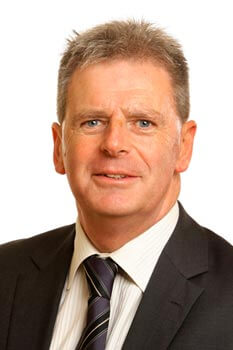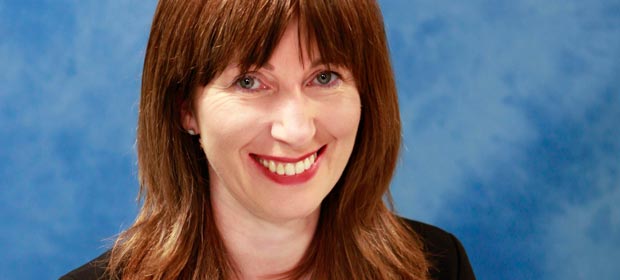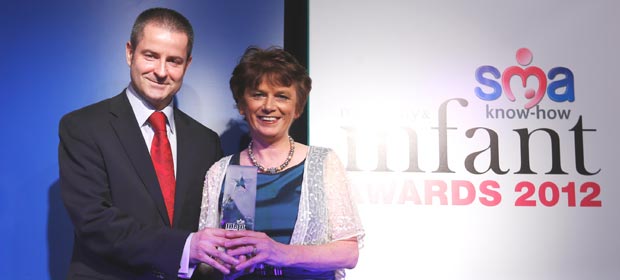- New HSE Directors to be appointed
- New Suicide Prevention Director
- Benefit of Scheduled Surgery to be assessed by HIQA
- Special merit award for Temple Street Hospital
- €13 million development for Kilkenny
- Fellowships awarded
- HSE Procurement scoops two top awards
New HSE Directors to be appointed
In a major u-turn, the Minister and Department of Health have decided to throw the five new HSE National Director posts open to all staff working in the statutory and HSE funded voluntary health services.
Initially it was stated these posts would be filled from among existing HSE National Directors, which gave rise to considerable criticism both within and outside the service.
However, the HSE has now stated that the posts are to be filled by a Public Appointments Service competition among existing health staff.
The five posts are a National Director of Acute Hospitals, a National Director of Primary Care, and a National Director of Mental Health, a National Director of Social Care and a National Director of Health &Wellbeing.
The five posts are being introduced as part of the revised HSE Management Structure which is being implemented in conjunction with the new governance arrangements provided for in the Health Service Executive (Government) Bill 2012.
Mr. Barry O’Brien, HSE National Director of Human Resources said “the five posts are to be filled by a competitive process run by the Public Appointments Service. All staff of the HSE, other statutory health agencies, the Department of Health and bodies which provide services on behalf of the HSE under the Health Act 2004 are only eligible to apply at this time.” The posts are not being advertised in the national press.
The closing date for the receipt of applications is February 7, 2013. More information as available on www.publicjobs.ie.
New Suicide Prevention Director

Mr. Gerry Raleigh has been appointed as the new Director of the National Office for Suicide Prevention. He will lead the work of the office, which is now focused on how greater integration and cohesiveness can be brought to the sector.
A native of Mullingar, he previously worked as Director of St. John of God Services in Dublin West and Director of City Gate, a housing service for people who have accessed mental health services.
Mr. Raleigh has managed disability services in the Midlands and community services in Laois/Offaly. He has worked extensively in mental health and disabilities services, with a particular interest in working with NGO partners in the area of mental health promotion and suicide prevention,
A trained psychiatric nurse, he has a BA in Healthcare Management and a Postgraduate Diploma in Human Resources.
Benefit of Scheduled Surgery to be assessed by HIQA
The clinical value and benefit of scheduled surgical procedures will be the subject of a series of rapid health technology assessments by the Health Information and Quality Authority (HIQA). Requested by the HSE, the assessments will focus on identifying the effectiveness of certain high volume scheduled surgical procedures currently undertaken in Ireland.

HIQA’s Director of Health Technology Assessment, Dr Máirin Ryan said, “The purpose of the assessment is to ensure that the patients most in need of surgery receive the required treatment as quickly as possible.”
“The need and demand for healthcare services continues to increase and given Ireland’s changing demographics, demand is likely to grow in the foreseeable future. Demand for scheduled surgery in particular continues to exceed available capacity, with the HSE reporting a 22 per cent increase in demand for these procedures in 2011 compared to 2010. As a result, pressure on national waiting lists continues to grow despite increases in activity levels.
“Clinical referral or treatment thresholds will be developed for certain surgical procedures where the benefits for some patients may be limited unless undertaken within strict clinical criteria. Streamlining referrals from family doctors to surgeons should help ensure that the right patients have the right surgery at the right time.
“By limiting such procedures in patients who may derive limited clinical benefit, there is a potential to free up capacity for treatments of higher clinical value thus maximising population health gain for the limited resources available.”
The assessment has been criticised by one GP, Dr. Ruairi Hanly, who said it now appeared that a state body had decided that it could step in and prevent a surgeon from carrying out a procedure that he felt was in the best interests of his patient.
“Thousands of people who have waited months or years for an operation could now potentially be told they “no longer meet the criteria”. The Government can then triumphantly announce it has “slashed waiting lists,” he said.
Dr. Hanly said the assessment “appears to be based on an assumption that Irish consultant surgeons in public hospitals are carrying out inappropriate and unnecessary procedures on people who do not benefit from them. In their public pronouncements thus far, HIQA has not produced any evidence to support this hypothesis. I suspect this is because no such evidence exists.
“By drawing up new arbitrary rules and rigid guidelines, HIQA seems to believe it can control and “improve” the entire system. The feelings of patients in the matter are apparently of no major concern, as HIQA knows what is best for them, far better than the doctors who have cared for them for years.”
HIQA has convened a multidisciplinary Expert Advisory Group to oversee the process of the rapid health technology assessments and to provide access to expert advice and information as required. The completed evaluation will be submitted to the HSE and to the Minister for Health.
The Terms of Reference of the evaluation are:
- Identify high volume scheduled surgical procedures currently undertaken in Ireland to which it would be appropriate to examine clinical referral/treatment thresholds.
- Describe the surgical procedures and the associated indications.
- Advise on appropriate clinical referral/treatment thresholds based on the available evidence of clinical effectiveness, cost-effectiveness and best practice.
- Consider the impact that implementation of clinical referral/treatment thresholds for scheduled surgical procedures is likely to have including resource and budget impact and the wider ethical or societal implications as appropriate.
Members of the Expert Advisory Group are Dr. Máirin Ryan (Chair), Director of Health Technology Assessment, HIQA, Dr. Patricia Harrington, Head of Assessment, HIQA, Dr. Linda Murphy, Assessment Manager, Health Technology Assessment Directorate, HIQA, Dr. Joe Clarke, Clinical Lead, Primary Care Clinical Programme, HSE, Mr. Paul Connell, Consultant Ophthalmologist, nominated by the Royal College of Surgeons in Ireland, Dr. Anne Flood, Director of Nursing and Midwifery, Letterkenny General Hospital, HSE West, Mr. John Hennessy, Regional Director of Operations, HSE West, Professor Frank Keane, National Lead, Elective Surgery Clinical Programme, HSE, Mr. Stephen McMahon, Irish Patients’ Association, Mr, Paul Moriarty, Consultant Ophthalmologist, nominated by the Royal College of Surgeons in Ireland, Mr. Kevin O’Malley, Consultant Vascular Surgeon, nominated by the Royal College of Surgeons in Ireland, Dr. Margaret O’Riordan, Medical Director, Irish College of General Practitioners, Mr. David Quinlan, Consultant Urologist, nominated by the Royal College of Surgeons in Ireland, Mr. John Russell, Consultant Otolaryngologist, nominated by the Royal College of Surgeons in Ireland, Dr. Alan Smith, Director of Performance Improvement (Scheduled Care), Special Delivery Unit, Department of Health, Acting CEO National Treatment Purchase Fund.
Special merit award for Temple Street Hospital
Temple Street Children’s University Hospital, has been recognised with a Special Merit Award for the provision of outstanding care and dedication to sick children across Ireland, at the 2012 SMA Maternity & Infant Awards.
The Special Merit Award was presented to Temple Street in recognition of the unique care and attention provided to children at the hospital on a daily basis.

Speaking at the awards ceremony, Ms. Mona Baker, CEO at Temple Street said “I am extremely proud to accept this award on behalf of each and every staff member at our hospital. The Special Merit Award pays tribute to the unsung heroes whose skill, professionalism and loving care provides hope for countless children and their families who receive their help.”
With 85 consultants and over 950 full-time and part-time nursing, paramedical and other staff, Temple Street provides care for 133,000 children every year. Over 45,000 of these children attend the Emergency Department making it one of the busiest in Europe.
The Hospital is the National Centre for Inherited Metabolic Disorders and operates the National Screening Laboratory, which screens all newborn children for a range of inherited conditions. Major specialties at Temple Street include neonatal and paediatric surgery, paediatric neurosurgery, nephrology, neurology, orthopaedics, ENT and plastic surgery. The National Airway Management Centre, the National Meningococcal Reference Laboratory and the National Sudden Infant Death Register are also located in the Hospital.
€13 million development for Kilkenny
The sod has been turned on a new €13 million development at St. Luke’s Hospital in Kilkenny.
It will include a new Emergency Department, an Acute Medical Assessment Unit, a day services unit and a new library/education centre, which will be part funded by the University of Limerick and the Royal College of Surgeons in Ireland.
The AMAU will be a ten bedded unit which will be located adjacent to the new Emergency Department. The ED will have a waiting area, triage area, separate adult and paediatric resuscitation areas and x-ray facilities. The building is due for completion in June of next year.
HSE Carlow/Kilkenny Area Manager, Ms. Anna Marie Lanigan said the development will mean there will be a state of the art hospital at St. Luke’s.
Fellowships awarded
The All Ireland Institute of Hospice and Palliative Care (AIIHPC) has awarded four palliative care education fellowships worth €10,000 to Dr. Noleen McCorry, Marie Curie Centre, Belfast, Ms. Mary Ferns, Irish Cancer Society, Dr. Sinead Hutcheson, Marie Curie Hospice, Belfast, and Ms. Aisling Kearney, Galway Hospice Foundation.
The fellowships are aimed at developing the knowledge, capacity and leadership skills of those working in the palliative care communities in the Republic of Ireland and Northern Ireland.
Dr. Noleen McCorry, a research facilitator at Marie Curie Hospice, Belfast, has been awarded an international fellowship worth €4,000. She hopes to pursue an opportunity to observe and gather information about the processes, methods and strategies used by leading institutions to effectively translate up to date research evidence into staff education and practice.
Ms. Mary Ferns is the Night Nursing Manager with the Irish Cancer Society. The Night Nursing service provides support and care for patients and their families in their homes at end of life. This non-specialist nursing team attends both cancer and patients with non-malignant disease. She has been awarded a fellowship of €2,000 which she hopes to use to expand her knowledge around supporting the educational and professional development needs of non-specialist nurses working in palliative care in the community setting.
Dr. Sinead Hutcheson is a specialist trainee in palliative medicine at Marie Curie Hospice, Belfast. Her interest is in the transition of care with young people with palliative care needs to adult services and she hopes to use her €2,000 fellowship to broaden her understanding of this area. She hopes to be able to share her learning with fellow colleagues and identify potential educational needs in this area.
Ms. Aisling Kearney is a Senior Medical Social Worker at Galway Hospice Foundation. She plans to use her €2,000 fellowship to undertake training in cognitive behavioural therapy (CBT) in cancer and palliative care. CBT can help patients enhance their coping skills and encourages greater understanding of the psychological mechanisms which could contribute to anxiety or sadness associated with illness.
Commenting on the awarding of the fellowships, AIIHPC Head of Education Dr Michael Connolly said, “Access to training and career development opportunities for the palliative care community is an important aspect of our work at the Institute. We commend all those who applied for the fellowships on the high standard of applications, which goes to prove the real appetite for opportunities amongst those working in palliative care. Our four successful applicants now have the opportunity to expand their own knowledge and experience, as well as those of their colleagues and the wider palliative care community with whom they can share their learning. We wish them well”. For more information on AIIHPC visit www.aiihpc.org.
HSE Procurement scoops two top awards
The HSE’s Procurement Team won two top awards at the National Procurement Awards 2012.
The Team was awarded the Innovation in Public Procurement Award and also won the Best Use of Technology Award at an event held to celebrate excellence in public and private procurement in Ireland.

The HSE received the Innovation in Public Procurement Award for using an electronic auction to hold a mini-competition for the supply of disposable continence products – a process that resulted in a saving of more than €6m.
The organisation received the Best Use of Technology Award for introducing voice directed technology to generate significant productivity and accuracy gains.
In the electronic auction, HSE suppliers were invited to tender to provide and supply disposable containment continence products and ancilliary services. Northcore Technologies was the e-auction service provider for the venture.
A ‘reverse auction’ is the most common type of online auction. The buyer benefits from significant price reduction the supplier benefits because an e-auction is, effectively, a very open and transparent competition where the supplier can bid against the other companies participating. Such auctions can reduce procurement costs and offer greater transparency for buyers and sellers.
A newly developed voice picking solution has been implemented in the HSE Procurement National Distribution Centre in Tullamore, Co Offaly eliminating paper and improving pick accuracy and efficiency.
The process resulted in a significant improvement in quality, better management of home delivery and reduced costs. The use of e-auctions should increase the frequency of tendering for a product/service type allowing companies back into the market quicker to compete again.
The HSE intends to use this option again as part of its strategic approach to the market at a future date.
Voice directed technology reduces errors that can occur when a staff member in the warehouse optically scans one slot but accidently picks from another. It also keeps their hands free to perform a task and eliminates paper picklists.
Typically voice solutions prevent at least 80 per cent of picking errors by picking the wrong product or the wrong quantity.
A newly developed voice picking solution has been implemented in the HSE Procurement National Distribution Centre in Tullamore, Co Offaly eliminating paper and improving pick accuracy and efficiency.
Benefits brought about by the new solution include increased efficiency, improved operational control, maximisation of limited resources, reduction in manual entry and paperwork, reduction in restocking costs and errors, improved customer service and improved management reporting.
John Swords, HSE Head of Procurement, congratulated the team on its achievements saying “Our team has realised significant savings and brought about improvements which will benefit the health service and patient care. The judging panel were impressed by the quality of the work presented and these awards are a great boost to all who work in HSE Procurement.”
Now in its third year, the National Procurement Awards aim to encourage teams and individuals to constantly raise the bar, to innovate and maintain their commitment to achieving excellence in procurement in their day-to-day endeavours.
The awards attracted over 60 entries, with judges commenting on the overall high standards which made choosing the eventual winners all the more difficult.
Judging was under the auspices of the Irish Institute of Purchasing and Material Management, the longest established and largest institute of procurement professionals in Ireland. A distinguished panel of judges was drawn from state, semi-state and private sectors.
It was organised by Event Strategies in association with the Irish Institute of Purchasing and Materials Management.

